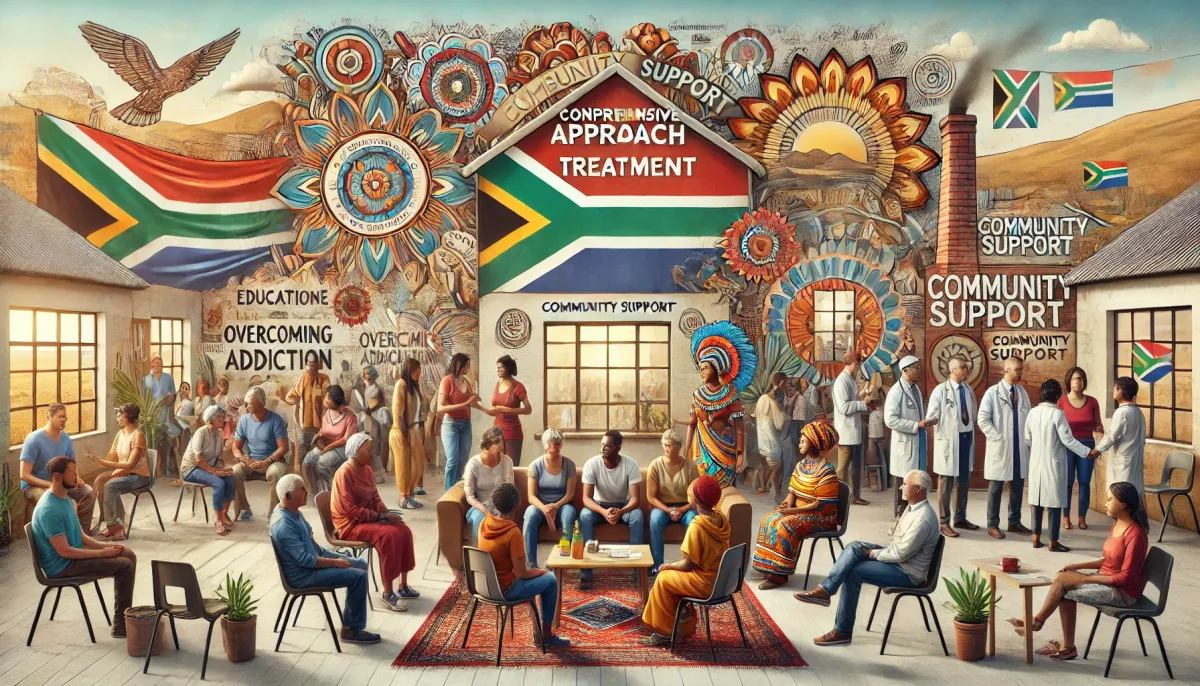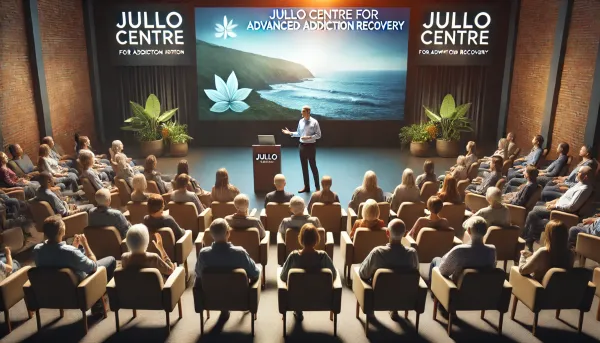Expanding the Scope of the South African Substance Abuse and Prevention Act: A Comprehensive Approach to Addiction

Introduction
Addiction is a multifaceted issue that extends beyond the confines of substance use. In South Africa, the Substance Abuse and Prevention Act currently focuses predominantly on substance-related addictions, neglecting the growing prevalence of process addictions such as technology, sex, gambling, and overeating. This narrow focus limits access to comprehensive treatment options and perpetuates a cycle of stigma and misunderstanding surrounding addiction disorders. To effectively address the complexities of addiction in a rapidly evolving society, it is imperative to revise the existing legislation to encompass a broader understanding of addiction, ensuring that individuals struggling with all forms of addiction receive equitable and appropriate care.
Understanding Addiction
Addiction is not merely a matter of choice; it is a complex condition influenced by a combination of neurobiological, psychological, and social factors. Traditional views often frame addiction as the result of substance abuse, failing to account for behavioral addictions that can have equally devastating effects on individuals and communities. The similarities between substance-related and process addictions are evident in the neurobiological mechanisms involved. Both types of addiction activate similar pathways in the brain, leading to compulsive behaviors, withdrawal symptoms, and an insatiable drive for immediate gratification, often at the expense of long-term well-being.
The Misclassification of Addiction Disorders
One of the major challenges in addressing addiction in South Africa is the misclassification of addiction-related disorders as non-communicable diseases or mental health issues, such as depression, anxiety, and mood disorders. This mislabeling creates barriers to treatment, as individuals may not receive the specialized care they need for their specific conditions. Furthermore, it contributes to the stigma associated with addiction, discouraging individuals from seeking help and perpetuating a cycle of shame and isolation.
The Need for a Comprehensive Approach
To effectively combat addiction, it is essential to adopt a comprehensive approach that addresses the root causes of addiction disorders. Research suggests that many of these disorders stem from abnormal neurodevelopment, which can be linked to historical trauma and adverse social conditions. Generational trauma, often exacerbated by poverty and socio-economic instability, plays a significant role in the development of addiction. Additionally, the pervasive marketing of coping mechanisms—such as high-calorie foods, easy access to technology, and gambling—further complicates the landscape of addiction, leading to maladaptive coping strategies that are passed down through generations.
By expanding the definition of addiction to include both substance-related and process addictions, the South African government can facilitate a more inclusive and effective treatment framework. This framework should prioritize resilience-building, equipping individuals and families with the skills necessary to navigate the complexities of their experiences and develop healthier coping mechanisms.
The Role of Legislation in Addiction Treatment
Legislation plays a crucial role in shaping the landscape of addiction treatment. The current focus of the South African Substance Abuse and Prevention Act is insufficient to address the complexities of addiction in the modern world. By failing to include process addictions in the legal definition of addiction, the Act restricts access to necessary treatments and support systems for individuals suffering from these disorders.
Expanding the Act to encompass a broader range of addiction disorders would allow for more equitable access to treatment resources. It would also enable healthcare providers to deliver comprehensive care that addresses the full spectrum of addiction, from substance use to behavioral disorders. This shift would require a reevaluation of existing treatment protocols and the establishment of specialized programs tailored to the unique needs of individuals struggling with process addictions.
Training and Education: A New Paradigm
To effectively implement a more comprehensive approach to addiction treatment, changes in training and education are essential. Current training syllabi in healthcare and addiction treatment often focus on disease-oriented models that prioritize pharmacological interventions over holistic care. This narrow focus limits the capacity of healthcare providers to understand and address the complexities of addiction in all its forms.
By integrating person-centered and community-focused care into training programs, future healthcare professionals can be better equipped to support individuals struggling with addiction. This approach emphasizes the importance of understanding the individual’s context, including their historical and social background, and recognizing the impact of generational trauma on their experiences. Such training can foster a more compassionate and comprehensive understanding of addiction, leading to more effective treatment strategies and better outcomes for individuals and families.
Addressing the Stigma of Addiction
Stigmatization remains one of the most significant barriers to accessing treatment for addiction disorders. Individuals suffering from addiction often face judgment and discrimination, leading to feelings of shame and isolation. This stigma is perpetuated by the current legal framework, which frames addiction primarily as a substance-related issue. By broadening the understanding of addiction to include behavioral disorders, the South African government can help reduce stigma and encourage individuals to seek help without fear of judgment.
Public awareness campaigns are essential to changing perceptions of addiction and promoting understanding of its complexities. These campaigns can highlight the commonalities between substance-related and process addictions, emphasizing that addiction is a health issue that requires compassionate care rather than punishment or judgment. By fostering a culture of understanding and support, society can begin to dismantle the stigma surrounding addiction, encouraging individuals to seek the help they need.
The Importance of Community Support
Community support plays a critical role in the recovery process for individuals struggling with addiction. By expanding the Substance Abuse and Prevention Act to include all addiction disorders, the government can encourage the development of community-based support systems that provide resources, education, and encouragement to individuals and families affected by addiction.
Community programs can foster resilience and empower individuals to develop healthier coping mechanisms. Support groups, educational workshops, and outreach initiatives can provide individuals with the tools they need to navigate the challenges of addiction and recovery. By creating an environment that encourages open dialogue and understanding, communities can play a vital role in supporting individuals on their path to recovery.
Policy Recommendations for the South African Government
- Expand the Definition of Addiction: The South African government should amend the Substance Abuse and Prevention Act to include process addictions, recognizing the similarities between substance-related and behavioral addictions.
- Integrate Comprehensive Treatment Options: Healthcare providers should be encouraged to develop and implement treatment protocols that address the full spectrum of addiction, including behavioral disorders. This integration should include a focus on resilience-building and skills development.
- Revise Training Programs: Training syllabi for healthcare professionals should be revised to include a comprehensive understanding of addiction, emphasizing person-centered and community-focused care.
- Foster Public Awareness: The government should initiate public awareness campaigns to promote understanding of addiction in all its forms and to reduce stigma associated with seeking help.
- Support Community-Based Initiatives: Encourage the development of community-based support programs that provide resources and education to individuals and families affected by addiction.
- Research and Evaluation: Invest in research to evaluate the effectiveness of treatment programs for process addictions and to inform future policy decisions.
Conclusion
As the landscape of addiction continues to evolve, it is essential for the South African government to adapt its policies and legislation to address the complexities of addiction in all its forms. By expanding the scope of the Substance Abuse and Prevention Act to include both substance-related and process addictions, the government can promote equitable access to comprehensive treatment options and reduce the stigma associated with addiction.
This broader understanding of addiction recognizes the impact of historical trauma, adverse social conditions, and the pervasive marketing of maladaptive coping mechanisms. By fostering resilience and equipping individuals and families with the skills they need to navigate the challenges of addiction, South Africa can work towards a healthier, more supportive society for all its citizens.
In a world that is increasingly recognizing the complexity of addiction, it is time for South Africa to lead the way in implementing policies that reflect this understanding. By embracing a comprehensive approach to addiction, the government can empower individuals, strengthen communities, and ultimately improve the overall well-being of society.



